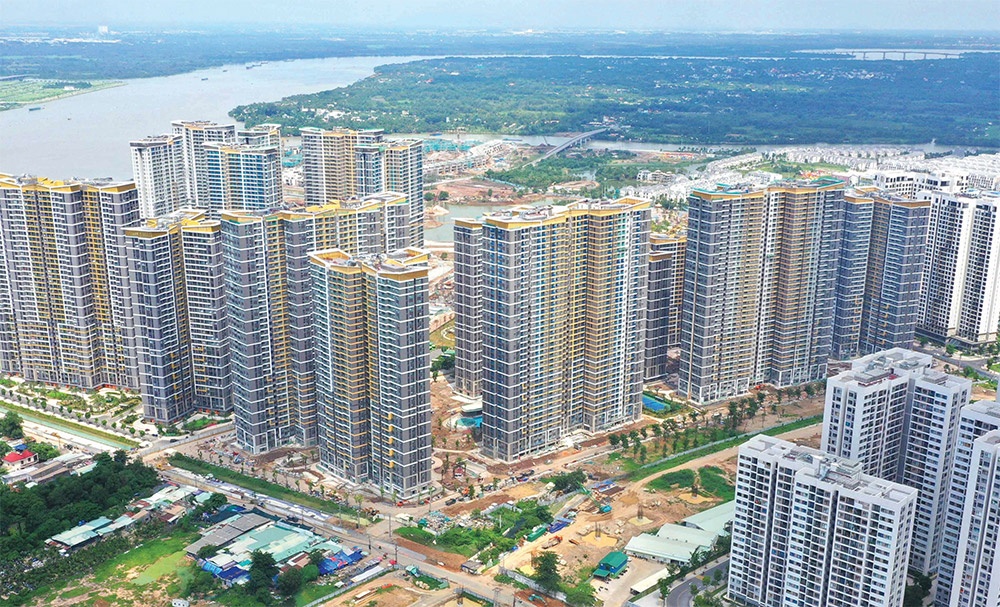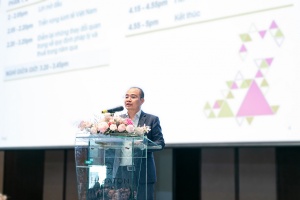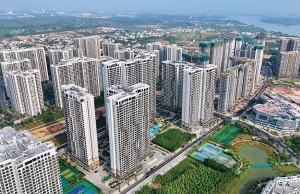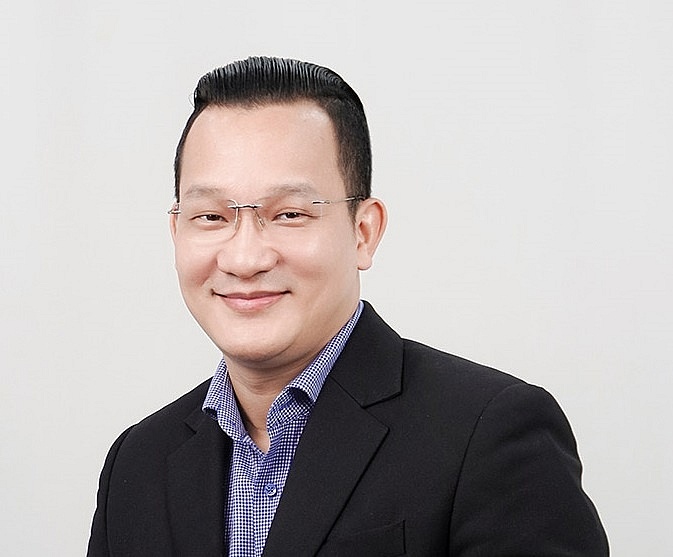Land tax plans must solve speculation issue
 |
| The rules have to distinguish who pays tax for several properties, and who is effectively hoarding, photo Le Toan |
This draft proposal, aiming to prevent speculation and inflated real estate prices, and recently mapped out by the construction and finance ministries, is expected to be submitted to the National Assembly for comment this month, and approved in May 2025.
In a September report sent to the Government Office on the causes of recent real estate price increases, the Ministry of Construction (MoC) said it would study and propose a tax policy for owners of many houses and lands to limit quick speculation to make a profit.
According to the MoC, the factors contributing to the recent hike in housing prices include several investors, speculators, and real estate brokers. Regarding auctions with winning prices of over $4,100 per sq.m of land without infrastructure on the outskirts of Hanoi recently, the report assessed that many investment groups participate in auctions and then sell immediately to make a profit.
“The buying and selling of many plots of land for illegal profit is common, even in well-organised areas. This hikes up the price of land and homes in the surrounding area,” the report said.
Some groups, investors, and individual real estate brokers distort market information to push the price up, create virtual prices, or take advantage of people’s lack of knowledge to woo them to invest, it added.
Normally, investors of housing projects spend an average of 3 per cent of the selling price to pay to the trading floor and brokers. However, brokers often add more benefit when transacting with buyers. The report claimed that during the rush period, many brokers also use the method of depositing to buy houses and land from sellers, and then increasing the price by 10-15 per cent to sell to others.
In addition, some investors also contribute to pushing up housing prices by offering high selling prices from the beginning, raising the expected profit higher than the average of real estate projects.
Some experts say consumption of the entire market is still weak and so, if the MoC proposal is approved, it will cause the market to fall into a deadlock once again.
Nguyen Van Dinh, an independent real estate legal expert, said that one of the reasons for the escalation of house and land prices is the phenomenon of speculation and hoarding, supported by banks.
“This is a VIP customer group of banks because the loans are always mortgaged with houses and land - which are considered to almost always increase in price and have little risk. The investment needs of the people are legitimate, but when this phenomenon is at a high level, it becomes mere speculation and hoarding of homes and land, distorting the market and wasting resources,” Dinh said.
Taxing houses and land is a mandatory solution already stipulated in regulations on improving the effectiveness and efficiency of land management and use, Dinh added.
Financial expert Dinh The Hien said that property tax is simply understood as a tax collected on people with assets, and more assets means more tax. For people with an average standard of living and only having one property to their name, there is no need to worry.
“As for people with many assets, and those that continuously generate profits, paying more taxes is a must-do. In cases of borrowing for investment, tax is part of the cost that investors must calculate, and profit and loss always go together,” Hien said.
However, taxing property on people with many homes and pieces of land at this time will create more pressure on real estate prices, Hien added.
According to economic expert Dr. Huynh Thanh Dien, the purpose of property tax is to regulate speculative behaviour. The method is correct, but taxing second and third houses is unreasonable unless they are being used for speculative purposes.
“Regarding people who have houses for rent and have paid full taxes, a property tax should not be imposed on these cases as it just becomes simply a double tax,” Dien said.
“If a big family has many homes and all are used for living and renting, then no tax should be imposed. But if a house is left vacant and unused, the owner must pay property tax every year. Similarly, if the land is abandoned, the owner must pay property tax every year, but if the land is exploited for business purposes, many lands do not have to pay property tax,” he added.
| Giang Do, director of Advisory Savills Vietnam
In theory, the main purpose of applying property tax in general or on second homes in particular is to redistribute assets: the more assets a person has, the more tax he has to pay. The tax money will then be used to implement public projects on technical and social infrastructure. In addition, curbing speculation and solving the housing shortage problem are also important purposes of applying tax to second homes. Currently, in big cities like Hanoi and Ho Chi Minh City, there are many vacant houses, not for rent or for sale, of all types from luxury villas to apartments. This situation occurs because many investors buy houses (from the second house onwards) not to live in but to speculate, waiting for the value to increase and then sell in the future. Therefore, imposing a property tax on second houses will curb speculation by increasing the cost of holding assets. For investors who accept to invest in a second home or more, the imposition of the tax will encourage them to put the property into use in the form of renting or selling. From there, this regulation can partly solve the problem of housing shortage in the current market. In the long term, housing prices may stabilise and not increase much if the imposition of the tax on second homes is long-term and large enough to change the behaviour of investors. In the short term, however, the impact may be unclear or unequal across markets In developed areas where second homes are a large proportion of the population, the tax may dampen transactions, causing prices to stagnate or fall slowly. However, in areas where demand is really high, or where supply is otherwise tight, the pressure to buy may increase prices in the early stages of the policy. Duong Tong, independent real estate expert
Taxing second-home and abandoned properties is a positive and worthy step in the context of Vietnam’s rapidly developing real estate market. This is a measure to promote the efficient use of land and assets, and prevent real estate speculation - one of the factors contributing to the imbalance between supply and demand, pushing up real estate prices and affecting market stability. Imposing taxes on second-home and unused properties can bring benefits such as creating a stable source of budget revenue and encouraging people to use real estate more reasonably. In addition, this policy can also encourage people to put abandoned properties into use, contributing to reducing the waste of land resources. However, it is important to have a clear, transparent, and flexible tax mechanism that is suitable for actual conditions. Tax policies need to carefully consider factors such as the purpose of use, location, and type of real estate so as not to negatively affect owners with legitimate needs. Implementing policies carefully and with a suitable roadmap, will help ensure a balance between the goal of regulating the market and the interests of the people. >--------------------------------< Taxes imposed for second homes elsewhere - Singapore: According to Singapore’s Additional Buyer’s Stamp Duty (ABSD) rates in 2024, Singapore citizens have to pay an additional 20 per cent when purchasing a second home and 30 per cent for a third home. Permanent residents pay 30 per cent for a second home and 35 per cent for a third home. Foreigners and real estate agents pay between 35 per cent and 65 per cent on all transactions. - United Kingdom: When buying a second home, the buyer must pay an additional 3 per cent tax on top of the normal rate. For example, if the normal rate is 5 per cent, then when buying a second home, the tax will be 8 per cent. In addition, property owners must pay annual council tax, which depends on the value of the property and the locality. - France: Municipalities have the right to increase taxes from 5 per cent to 60 per cent on second homes or more that are not registered as a primary residence. For example, the city of Deauville has decided to impose an additional 20 per cent tax from the beginning of next year. - China: China has introduced a property tax on second home buyers in Shanghai and Chongqing, with annual rates ranging from 0.4 per cent to 1.2 per cent of the home’s value. Source: Cushman & Wakefield Vietnam |
 | Vietnam's new tax regulations reflect global tax trends There have been various economic ups and downs in the post-pandemic era that have necessitated decisive measures to sustain growth. Despite an improvement in the third quarter of the year, Vietnam's economy still faces a number of obstacles to achieve its targets. |
 | Land law overhaul transforms land acquisition Senior partner Duyen Ha Vo and senior associate Tram Dang of VILAF explore the potential implications of upcoming changes on land acquisitions of developers engaged in real estate, energy, and infrastructure projects. |
What the stars mean:
★ Poor ★ ★ Promising ★★★ Good ★★★★ Very good ★★★★★ Exceptional
Related Contents
Latest News
More News
- Saigon Centre gains LEED platinum and gold certifications (February 12, 2026 | 16:37)
- Construction firms poised for growth on public investment and capital market support (February 11, 2026 | 11:38)
- Mitsubishi acquires Thuan An 1 residential development from PDR (February 09, 2026 | 08:00)
- Frasers Property and GELEX Infrastructure propose new joint venture (February 07, 2026 | 15:00)
- Sun Group led consortium selected as investor for new urban area (February 06, 2026 | 15:20)
- Vietnam breaks into Top 10 countries and regions for LEED outside the US (February 05, 2026 | 17:56)
- Fairmont opens first Vietnam property in Hanoi (February 04, 2026 | 16:09)
- Real estate investment trusts pivotal for long-term success (February 02, 2026 | 11:09)
- Dong Nai experiences shifting expectations and new industrial cycle (January 28, 2026 | 09:00)
- An Phat 5 Industrial Park targets ESG-driven investors in Hai Phong (January 26, 2026 | 08:30)



 Tag:
Tag:




















 Mobile Version
Mobile Version